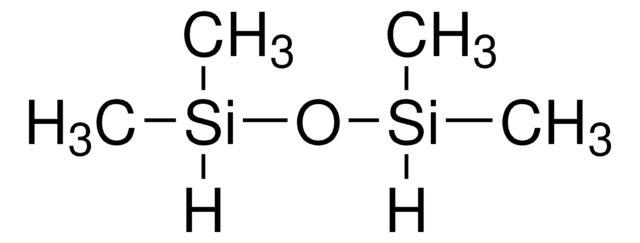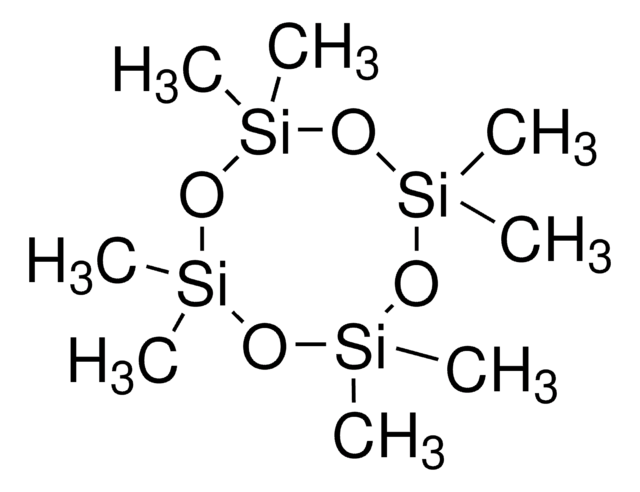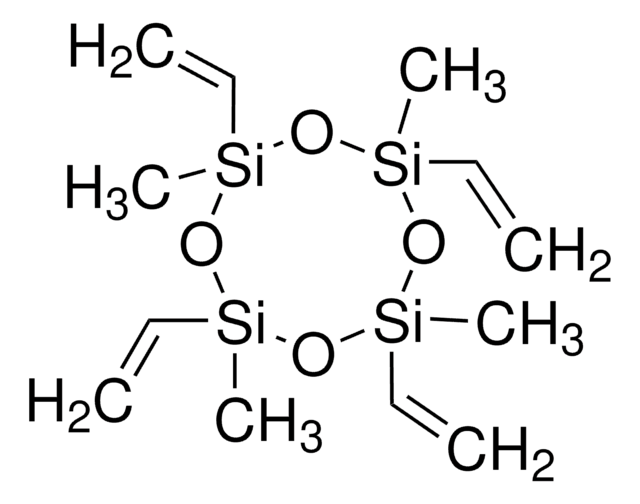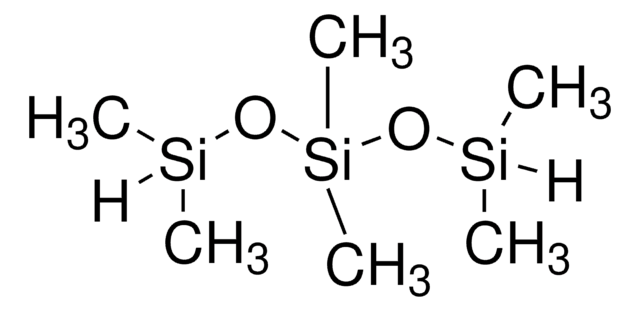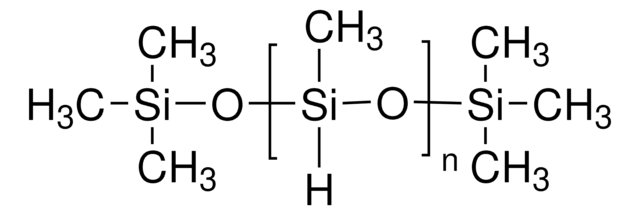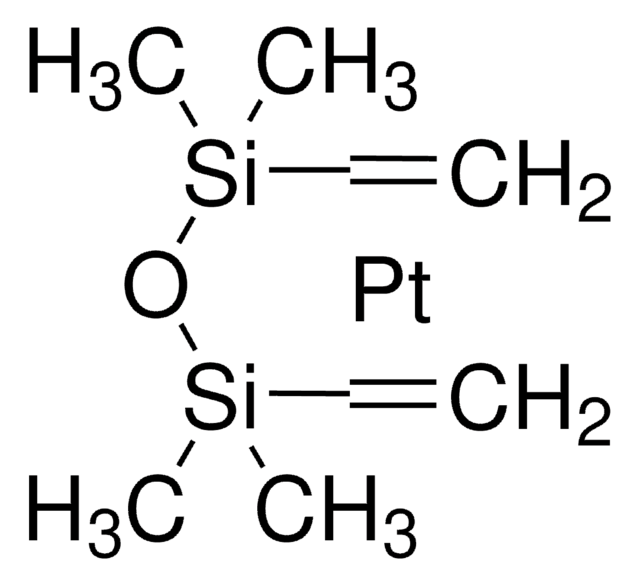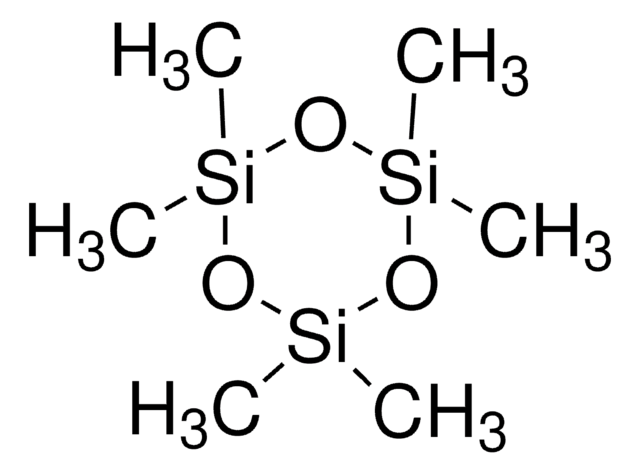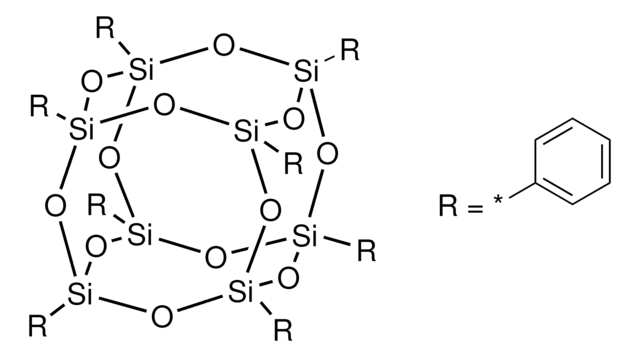512990
2,4,6,8-Tetramethylcyclotetrasiloxane
≥98.5%, ≥99.999% trace metals basis
Synonym(s):
1,3,5,7-Cyclotetra(methylsiloxane), 1,3,5,7-Tetramethylcyclotetrasiloxane, TMCTS
About This Item
Recommended Products
Quality Level
Assay
≥98.5%
≥99.999% trace metals basis
form
liquid
refractive index
n20/D 1.387 (lit.)
bp
134 °C (lit.)
mp
−69 °C (lit.)
density
0.986 g/mL at 25 °C (lit.)
storage temp.
2-8°C
SMILES string
C[SiH]1O[SiH](C)O[SiH](C)O[SiH](C)O1
InChI
1S/C4H16O4Si4/c1-9-5-10(2)7-12(4)8-11(3)6-9/h9-12H,1-4H3
InChI key
BQYPERTZJDZBIR-UHFFFAOYSA-N
Looking for similar products? Visit Product Comparison Guide
General description
Features and Benefits
Signal Word
Warning
Hazard Statements
Hazard Classifications
Flam. Liq. 3
Storage Class Code
3 - Flammable liquids
WGK
WGK 3
Flash Point(F)
75.2 °F - closed cup
Flash Point(C)
24 °C - closed cup
Personal Protective Equipment
Regulatory Listings
Regulatory Listings are mainly provided for chemical products. Only limited information can be provided here for non-chemical products. No entry means none of the components are listed. It is the user’s obligation to ensure the safe and legal use of the product.
FSL
Group 4: Flammable liquids
Type 2 petroleums
Hazardous rank III
Water insoluble liquid
JAN Code
512990-25ML:
512990-BULK:
512990-100ML:
512990-VAR:
Choose from one of the most recent versions:
Already Own This Product?
Find documentation for the products that you have recently purchased in the Document Library.
Articles
atomic layer deposition (ALD), microelectronics, Mo:Al2O3 films, nanocomposite coating, photovoltaics, semiconductor devices, W:Al2O3 films, composite films, layer-by-layer
A hard disk drive (HDD) is a data storage device that stores digital information by magnetizing nanosized magnets on flat disks and retrieves data by sensing the resulting magnetic field.
Spin-based electronic (spintronic) devices offer significant improvement to the limits of conventional charge-based memory and logic devices which suffer from high power usage, leakage current, performance saturation, and device complexity.
Hybrid organic-inorganic sol-gel materials containing silica were first called “ORMOSILs” in 1984.
Our team of scientists has experience in all areas of research including Life Science, Material Science, Chemical Synthesis, Chromatography, Analytical and many others.
Contact Technical Service